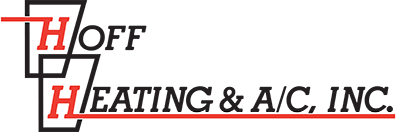Spring Clean Your Air
According to the EPA, the air inside your home may be up to five times more polluted than the air outside. So when you’re doing the annual clean-sweep, don’t forget to add it to your list. Spring clean your air Spring sprucing can have your home looking great in no time. But what about the mess you can’t see? Invisible particles, like bacteria, chemicals, pet dander, and viruses—along with dust, mold and mildew can pollute your indoor air, affecting your home, health and comfort. And since most people spend 90% of their time indoors, keeping the air clean is just as important as cleaning the surfaces you can see. Here’s a spring sprucing checklist that will help keep things tidy while helping to improve indoor air quality (IAQ): (cut down pollutants and combat poor indoor air quality). Ban the use of chemicals in your home Scented fragrances—like laundry detergents, floor cleaners and air fresheners —may smell fresh, but chances are, they’re polluting your indoor air. These products can emit dozens of different chemicals into the air, causing respiratory irritation. To combat synthetic fragrances, purchase naturally scented or fragrant-free products, use mild cleaners without artificial ingredients and discontinue use of aerosol...
View Article Read More
